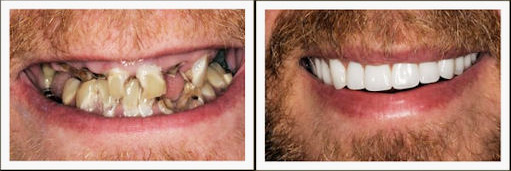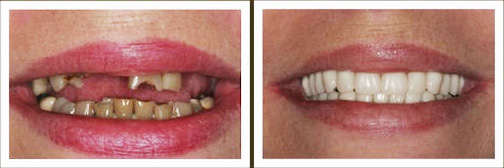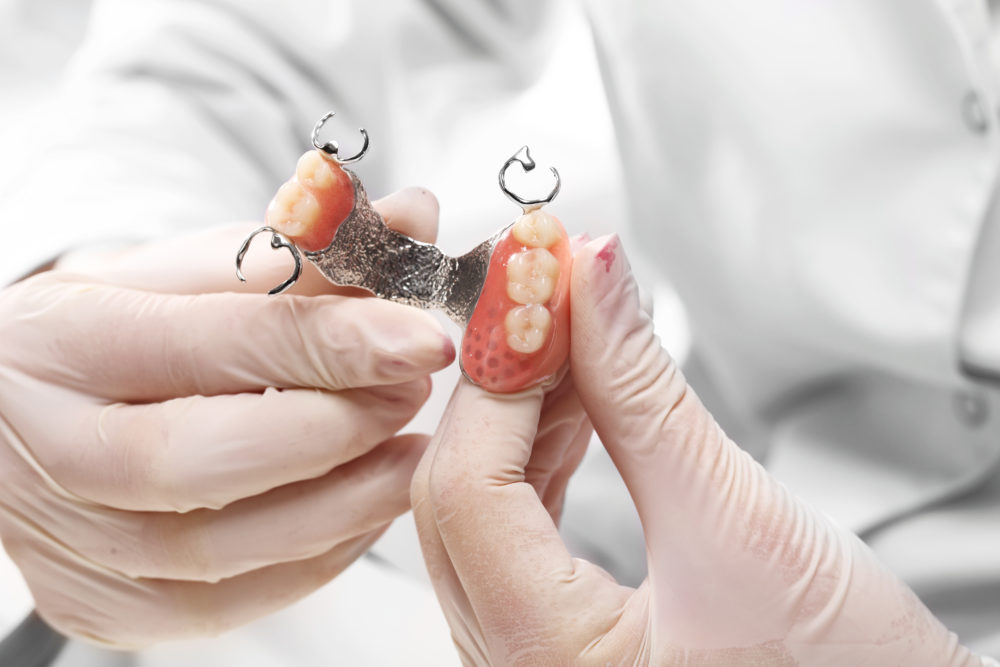Comfortable and Long-Lasting
Full and Partial Cosmetic Dentures
Which Denture Type Is Right For You?
You can benefit from complete denture procedures at our dental office in Appleton, WI. Ask us how we can help you by filling out the form.
Reasons for Dentures
- Complete Denture – Loss of all teeth in an arch.
- Partial Denture – Loss of a few to several teeth in an arch.
- Enhancing smile and facial tissues.
- Improving esthetics, chewing, speech, and digestion.
Conventional or Immediate Dentures?
Immediate dentures are made in advance and immediately placed after the teeth are removed, thus preventing the patient from having to be without teeth during the healing process. Once the tissues shrink and heal, adjustments and relines will have to be made.
It is normal to experience increased saliva flow, some soreness, and possible speech and chewing difficulty. However, this will subside as your muscles and tissues get used to the new dentures, and you will be given care instructions for your new dentures. Proper cleaning of your new dental appliance, good oral hygiene, and regular dental visits will aid in the life of your new dentures.
Dentures are very durable appliances and will last many years, but may have to be remade, repaired, or readjusted due to normal wear and tear.
Implant-Supported Overdentures
Old dentures (or your existing denture) can usually be retro-fit to accommodate the denture. As far as dentures go, this is the second best denture option for long term. In the opinion of Dr. Luther, almost all lower dentures should be an overdenture because otherwise they just “float” around, making it difficult to speak and talk. This option still makes the denture removable each night.





